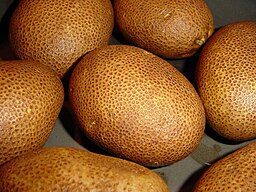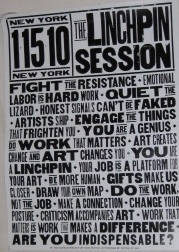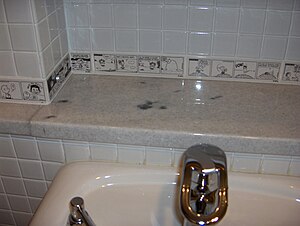Baked as a side dish, yes. Turned into french fries, absolutely. A basis for potato salad, sure. You can even make a science project that uses a potato as a power source for a lamp.
But not an instrument.
Same thing for carrots and leeks.
Music? Or soup?
Put those things together and they don’t really sound terribly musical. In fact, the first thing that comes to mind isn’t music, but soup.
It can be done though.
Nan Weidong and Nan Weiping, two brothers in China, have become known for just that. They drill holes in the vegetables, and tune them with an old electronics tuner.
The result: music.
Think different
Sure it sounds a bit odd, but it works. In fact, they’ve become very popular performers, and and earn up to $8,000 per show.
Being a musician, that’s ordinary. Playing the potato; that’s different.
They’ve found a way to clearly and absolutely differentiate themselves from every other musician on the planet. Who else plays the potato? Nobody.
Find your edge
Some call it an edge, others a “game-jumper”, still others a USP (unique selling proposition). Whatever you call it, it’s something that makes you stand out. and makes you different enough that people will talk about it.
If you have no musical talent (or vegetable carving skills), there are plenty of other ways to do this.
You could make something complicated really simple (like Gary Vaynerchuk did with wine – he talks about it like a layman, not like a wine snob). Or, you could do something slowly, or by hand, that most do very quickly or by machine.
Be worth talking about, and your fame will spread. It might even spread all the way to China.





